 North Carolina has now filed a last gasp attempt with the U.S. Supreme Court to keep a racially discriminatory voter suppression law in place for the November general election. The state's Hail Mary --- or, perhaps, Hail Justice Roberts --- emergency petition is unlikely to succeed.
North Carolina has now filed a last gasp attempt with the U.S. Supreme Court to keep a racially discriminatory voter suppression law in place for the November general election. The state's Hail Mary --- or, perhaps, Hail Justice Roberts --- emergency petition is unlikely to succeed.
As we reported late last month, in a sweeping victory for voting rights on July 29, a unanimous panel of the U.S. 4th Circuit Court of Appeal struck down North Carolina's massive voter suppression law --- described as the nation's worst since the Jim Crow era. In a stinging rebuke, the court found the statute's provisions were enacted by state Republicans with "racially discriminatory intent" that "target[ed] African-Americans with almost surgical precision."
On August 4, that same 4th Circuit panel summarily denied NC's request for a stay of the injunction placed on the discriminatory law enacted by state Republicans in 2013 just after the U.S. Supreme Court had gutted the section of the federal Voting Rights Act that likely would have blocked most of the statute's provisions from ever being implemented in the first place.
In their rejected request for a stay at the 4th Circuit, NC relied primarily on the "Purcell principle" --- the Supreme Court's recently-adopted general notion that changes to election laws, for good or ill, should not be ordered too close to an election due to the risk of chaos and uncertainty the late changes might cause at the polls. NC's claim that there was insufficient time to implement the change mandated by the court's injunction was inconsistent with the assurance state officials provided during oral argument that they "would be able to comply with any order [the 4th Circuit panel] issued by late July." In citing that previous assurance, the 4th Circuit also noted: "the balance of equities heavily weighs against recalling the mandate or granting a stay. Voters disenfranchised by a law enacted with discriminatory intent suffer irreparable harm far greater than any potential harm to the State."
This past Monday, August 15 --- some seventeen (17) days after the 4th Circuit handed down its landmark decision striking down the state's law --- the state filed an Emergency Application to stay the injunction with the U.S. Supreme Court. In a pleading drafted by Paul Clement, who served as the U.S. Solicitor General during the Bush administration, the stay was requested on the basis of the (previously rejected) Purcell principle and because "the 4th Circuit's decision," according to Clement, "renders every [photo ID law in the nation] vulnerable to invalidation as purposefully discriminatory."
Emergency petitions from North Carolina are assigned to Chief Justice John Roberts. However, it is likely that Roberts will assign it to the full Court, where the votes of five (5) of the court's eight current Justices would be needed to grant the stay. As explained by U.C. Irvine Law Professor Rick Hasen, it is "unlikely" that NC will convince five Justices to do so...
Chutzpah
Under the legal doctrine of estoppel, a party can be prevented "from making assertions that are contradictory of their prior positions." In this case, on June 21, during oral arguments, NC did not tell the 4th Circuit they needed to hand down a decision earlier in order to implement it in time for the November general election. To the contrary, they assured the court that NC could comply with any decision handed down before the end of July.
Once again, the court handed down their ruling on July 29.
NC's argument to the 4th Circuit is so manifestly at odds with their emergency application to SCOTUS, arguing that there is now insufficient time to comply, that Ian Millhiser at ThinkProgress likens it to a classic, if informal, characterization of the word "Chutzpah" often used by attorneys. To wit: the little boy who murdered his parents and then asked the court for mercy because he was an orphan.
'Reining in the Purcell principle'
In line with the 4th Circuit's substantive reason for rejecting a stay, Hasen reiterates a position he previously set forth in his paper, "Reining in the Purcell Principle". The courts, he proffers, should be remiss in applying the Purcell principle to cases where there has been a finding of deliberate discrimination. Hasen argues that a stay in such cases should be rejected "even if a change comes at the last minute from the court."
A July 29 injunction issued with respect to a November 8 election is a far cry from "the last minute."
Nonetheless, in his emergency petition, Clement expresses dismay. "The Fourth Circuit's decision," he writes, "renders every [photo ID] law vulnerable to invalidation as purposely discriminatory."
While Clement's lament may prove to be an overstatement, the 4th Circuit's decision certainly renders GOP photo ID laws passed in states where there is racial polarization at the polls "vulnerable to invalidation as purposely discriminatory." It was with that in mind that, while addressing litigation currently pending before the 7th Circuit regarding a photo ID voting restriction enacted by Wisconsin Republicans, I cited the 4th Circuit panel's decision from late last month:
in states like North Carolina and Wisconsin, where there is "racially polarized" voting, the "targeting of a particular race's access to the franchise because its members vote for a particular party, in a predictable manner, constitutes discriminatory purpose," according to the unanimous three-judge 4th Circuit panel decision issued late last month.
However, where Clement and others who would roll back voting rights to the Jim Crow era may be troubled by this, those who value democracy and the right of every eligible citizen to cast a vote rejoice. In either event, the fact that photo ID laws are constitutionally suspect in no way supports North Carolina's claim that it needs emergency relief from an injunction that prevents it from continuing to carry out its illicit voter suppression scheme.
Ernest A. Canning is a retired attorney, author, Vietnam Veteran (4th Infantry, Central Highlands 1968) and a Senior Advisor to Veterans For Bernie. He has been a member of the California state bar since 1977. In addition to a juris doctor, he has received both undergraduate and graduate degrees in political science. Follow him on twitter: @cann4ing


 Meanwhile... :
Meanwhile... : 'Green News Report' 7/11/24
'Green News Report' 7/11/24
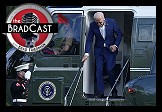 Paging 'Johnny Unbeatable'! Dems in Disarray! (But Really This Time): 'BradCast' 7/10/24
Paging 'Johnny Unbeatable'! Dems in Disarray! (But Really This Time): 'BradCast' 7/10/24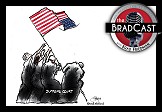 SCOTUS Immunity Ruling 'As Bad as it Sounds', Arguably Worse: 'BradCast' 7/9/24
SCOTUS Immunity Ruling 'As Bad as it Sounds', Arguably Worse: 'BradCast' 7/9/24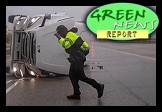 'Green News Report' 7/9/24
'Green News Report' 7/9/24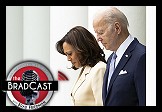 So, What Now?:
So, What Now?: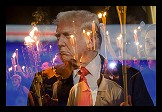 Overdue Debunking of MAGA Cult Xenophobia
Overdue Debunking of MAGA Cult Xenophobia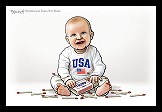 Sunday 'Courting Disaster' Toons
Sunday 'Courting Disaster' Toons Sunday 'Bad Medicine' Toons
Sunday 'Bad Medicine' Toons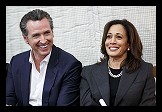 A Friendly Suggestion:
A Friendly Suggestion: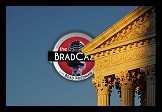 Former Fed Prosecutor: SCOTUS Corruption Ruling Less Corrupt Than Appears: 'BradCast' 6/27/24
Former Fed Prosecutor: SCOTUS Corruption Ruling Less Corrupt Than Appears: 'BradCast' 6/27/24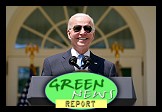 'Green News Report' 6/27/24
'Green News Report' 6/27/24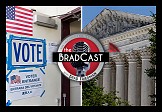 Good News and Bad: At the Polls and From the Corrupted Court: 'BradCast' 6/26/24
Good News and Bad: At the Polls and From the Corrupted Court: 'BradCast' 6/26/24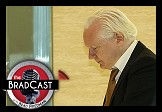 'Not Something Journalists Do': A NatSec Journo on Assange Hacking, Plea Deal: 'BradCast' 6/25/24
'Not Something Journalists Do': A NatSec Journo on Assange Hacking, Plea Deal: 'BradCast' 6/25/24 'Green News Report' 6/25/24
'Green News Report' 6/25/24 Fox 'News' Grooming Viewers for Another Insurrection: 'BradCast' 6/24/24
Fox 'News' Grooming Viewers for Another Insurrection: 'BradCast' 6/24/24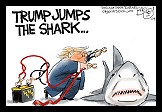 Sunday 'Shark Jumping' Toons
Sunday 'Shark Jumping' Toons The Prophecy and Warning of the White Buffalo: 'BradCast' 6/20/24
The Prophecy and Warning of the White Buffalo: 'BradCast' 6/20/24 'Green News Report' 6/20/24
'Green News Report' 6/20/24 CA Biz Group, WSJ 'Fabricate' $20/hr Fast Food Wage Stats: 'BradCast' 6/19/24
CA Biz Group, WSJ 'Fabricate' $20/hr Fast Food Wage Stats: 'BradCast' 6/19/24 Interference Threats Loom Over November's Presidential Election: 'BradCast' 6/18/24
Interference Threats Loom Over November's Presidential Election: 'BradCast' 6/18/24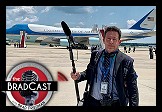 Inside White House Press Corps During Trump/COVID Era: 'BradCast' 6/17/24
Inside White House Press Corps During Trump/COVID Era: 'BradCast' 6/17/24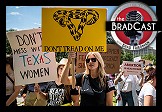 The Corrupt Anti-Abortion TX-to-SCOTUS Legal Mill Pipeline: 'BradCast' 6/13/24
The Corrupt Anti-Abortion TX-to-SCOTUS Legal Mill Pipeline: 'BradCast' 6/13/24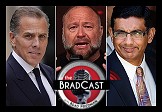 Hunter Conviction; Trump's Weaponized Ignorance: 'BradCast' 6/11/24
Hunter Conviction; Trump's Weaponized Ignorance: 'BradCast' 6/11/24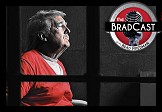 After Trump Verdict, GOPers Suddenly Warm to Voting for Felons: 'BradCast' 6/10/24
After Trump Verdict, GOPers Suddenly Warm to Voting for Felons: 'BradCast' 6/10/24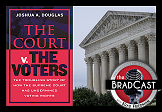 SCOTUS Has Been Undermining American Democracy for 50 Yrs: 'BradCast' 6/6/24
SCOTUS Has Been Undermining American Democracy for 50 Yrs: 'BradCast' 6/6/24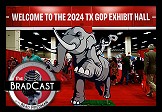 What Happens in Texas Does NOT Stay in Texas: 'BradCast' 6/5/24
What Happens in Texas Does NOT Stay in Texas: 'BradCast' 6/5/24
 VA GOP VOTER REG FRAUDSTER OFF HOOK
VA GOP VOTER REG FRAUDSTER OFF HOOK Criminal GOP Voter Registration Fraud Probe Expanding in VA
Criminal GOP Voter Registration Fraud Probe Expanding in VA DOJ PROBE SOUGHT AFTER VA ARREST
DOJ PROBE SOUGHT AFTER VA ARREST Arrest in VA: GOP Voter Reg Scandal Widens
Arrest in VA: GOP Voter Reg Scandal Widens ALL TOGETHER: ROVE, SPROUL, KOCHS, RNC
ALL TOGETHER: ROVE, SPROUL, KOCHS, RNC LATimes: RNC's 'Fired' Sproul Working for Repubs in 'as Many as 30 States'
LATimes: RNC's 'Fired' Sproul Working for Repubs in 'as Many as 30 States' 'Fired' Sproul Group 'Cloned', Still Working for Republicans in At Least 10 States
'Fired' Sproul Group 'Cloned', Still Working for Republicans in At Least 10 States FINALLY: FOX ON GOP REG FRAUD SCANDAL
FINALLY: FOX ON GOP REG FRAUD SCANDAL COLORADO FOLLOWS FLORIDA WITH GOP CRIMINAL INVESTIGATION
COLORADO FOLLOWS FLORIDA WITH GOP CRIMINAL INVESTIGATION CRIMINAL PROBE LAUNCHED INTO GOP VOTER REGISTRATION FRAUD SCANDAL IN FL
CRIMINAL PROBE LAUNCHED INTO GOP VOTER REGISTRATION FRAUD SCANDAL IN FL Brad Breaks PA Photo ID & GOP Registration Fraud Scandal News on Hartmann TV
Brad Breaks PA Photo ID & GOP Registration Fraud Scandal News on Hartmann TV  CAUGHT ON TAPE: COORDINATED NATIONWIDE GOP VOTER REG SCAM
CAUGHT ON TAPE: COORDINATED NATIONWIDE GOP VOTER REG SCAM CRIMINAL ELECTION FRAUD COMPLAINT FILED AGAINST GOP 'FRAUD' FIRM
CRIMINAL ELECTION FRAUD COMPLAINT FILED AGAINST GOP 'FRAUD' FIRM RICK SCOTT GETS ROLLED IN GOP REGISTRATION FRAUD SCANDAL
RICK SCOTT GETS ROLLED IN GOP REGISTRATION FRAUD SCANDAL VIDEO: Brad Breaks GOP Reg Fraud Scandal on Hartmann TV
VIDEO: Brad Breaks GOP Reg Fraud Scandal on Hartmann TV RNC FIRES NATIONAL VOTER REGISTRATION FIRM FOR FRAUD
RNC FIRES NATIONAL VOTER REGISTRATION FIRM FOR FRAUD EXCLUSIVE: Intvw w/ FL Official Who First Discovered GOP Reg Fraud
EXCLUSIVE: Intvw w/ FL Official Who First Discovered GOP Reg Fraud GOP REGISTRATION FRAUD FOUND IN FL
GOP REGISTRATION FRAUD FOUND IN FL


































